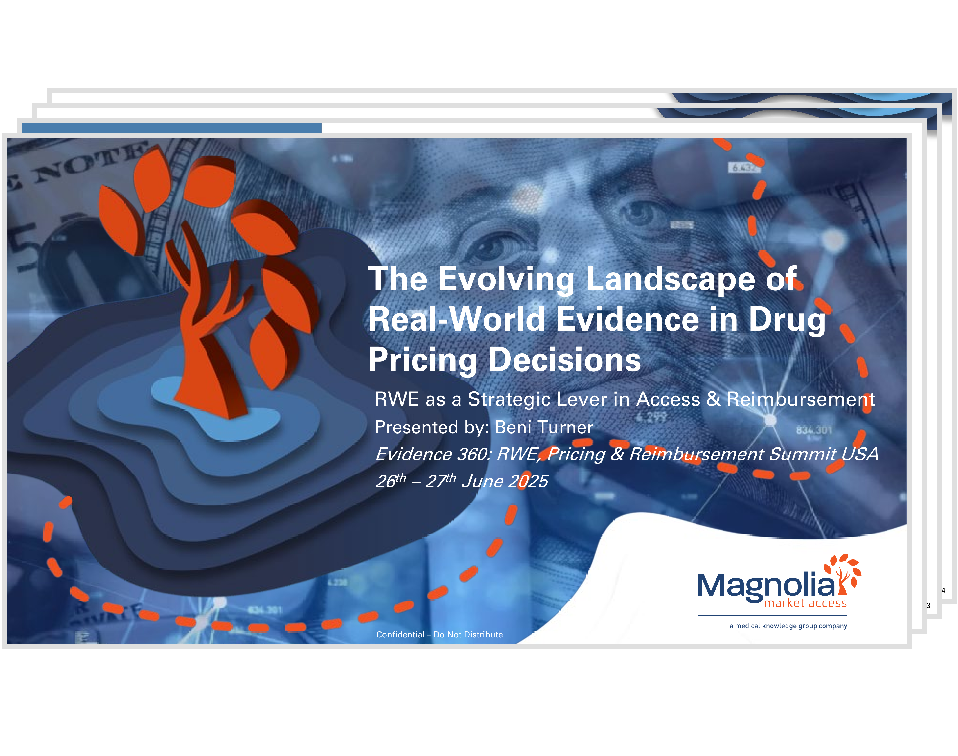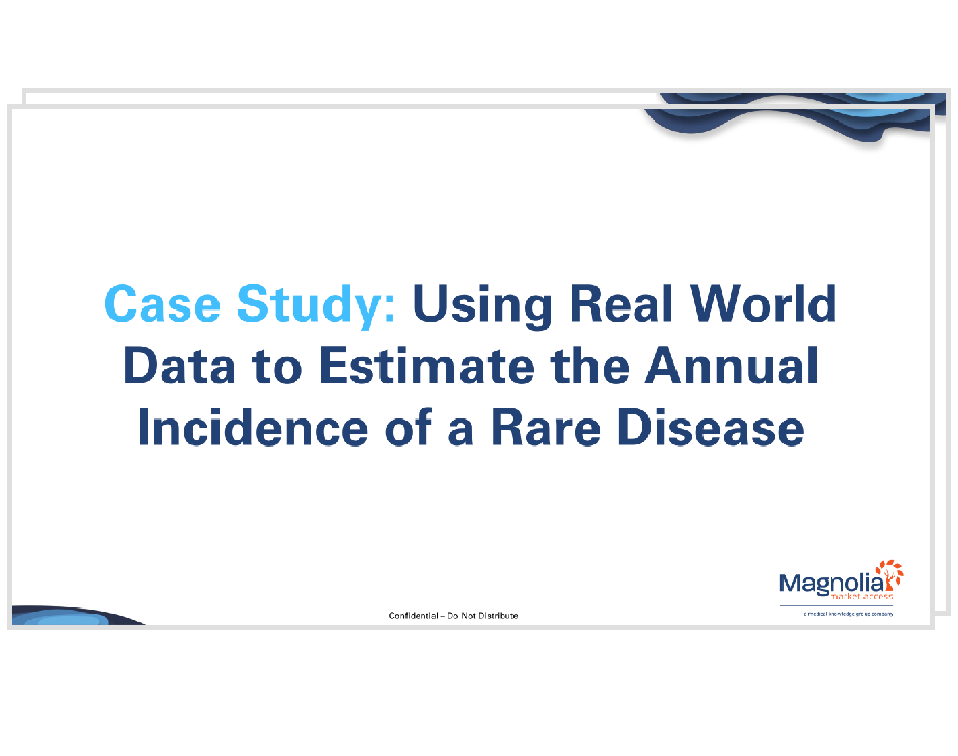Our Work
Upcoming Events
Want to stay informed about important policy, market access, and health economics issues? Join us for our monthly sessions to learn more!
Insights
We offer personalized insights and strategy, and spotlight data in a compelling way to shape policy, communicate value, secure reimbursement, and drive patient access.
-

Unlocking the Value of RWE in Drug Pricing Decisions
In this featured presentation from the 2025 Evidence 360 Summit, Magnolia Market Access’s Beni Turner explores how RWE can be strategically integrated across the product lifecycle to drive more effective pricing and access outcomes.
-

Case Study: Using Real World Data to Estimate the Annual Incidence of a Rare Disease
This case study explores how a small pharmaceutical company utilized real-world evidence (RWE) to calculate the national incidence of a rare disease.
-

MFN Policy Executive Order: What It Means for Pricing, Distribution, and Biopharma Strategy
On May 12, 2025, President Trump signed an executive order with the potential to significantly change the U.S. drug pricing and distribution system. Here is what we know about the Administration’s new Most Favored Nation (MFN) policy:
Market Access Briefs
A Blend of Core Concepts and Breaking Headlines
-

What is the Congressional Budget Office (CBO)?
The Congressional Budget Office (CBO) is an independent, nonpartisan agency that serves Congress by providing economic and budgetary analyses of proposed legislation. It estimates the financial impact of proposed bills and assigns them a budget score, which is used by lawmakers to determine how the bill will affect the federal budget over a typical 5-to-10-year…
-

What is frailty and why does it matter?
What Is Frailty? Frailty is a clinical syndrome characterized by a reduction in an individual’s physiological reserve and increased vulnerability to stressors, often seen in older adults.1 Characteristics of frailty include low physical activity, muscle weakness, slowed performance, fatigue or poor endurance, and unintentional weight loss.2 Health Risks and Clinical Impacts of Frailty Frail patients…
-

What is Inverse Probability of Treatment Weighting (IPTW)?
What Is Inverse Probability of Treatment Weighting (IPTW)? Inverse Probability of Treatment Weighting (IPTW) is a method used to control for confounding in observational data. IPTW methods use propensity scores to assign weights to each subject creating a pseudo-population where covariates are balanced across exposure groups. Understanding Confounding in Observational Research In a typical study,…